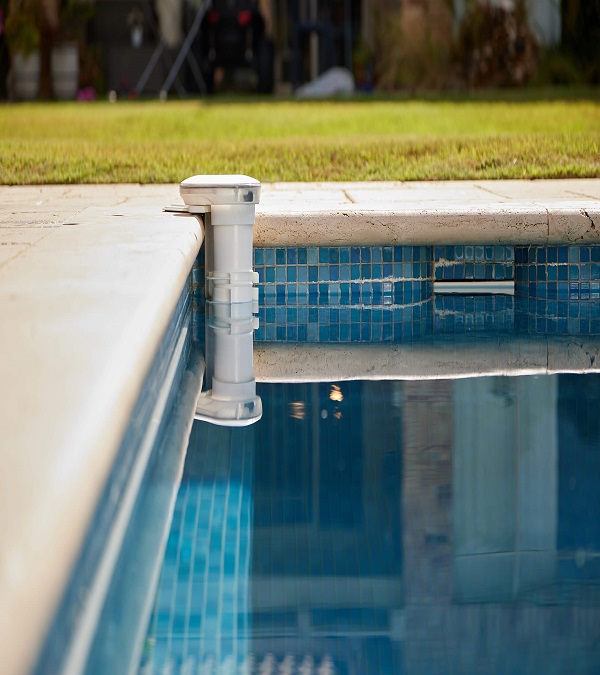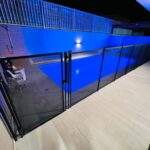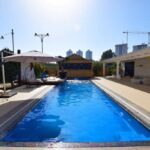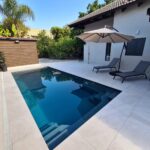Liam Pools designed to last, built to enjoy Contact us...
Read MoreSoil Types in Cyprus and Their Impact on Fiberglass Swimming Pool Construction
Cyprus, with its Mediterranean climate, presents a wide variety of soil types, each of which can have a direct impact on the construction of fiberglass swimming pools. Understanding the types of soil and the necessary adjustments during construction can ensure a stable, safe, and high-quality installation that will last for many years.
In this article, we will focus on the common soil types in Cyprus and the considerations that must be taken into account when installing fiberglass pools.
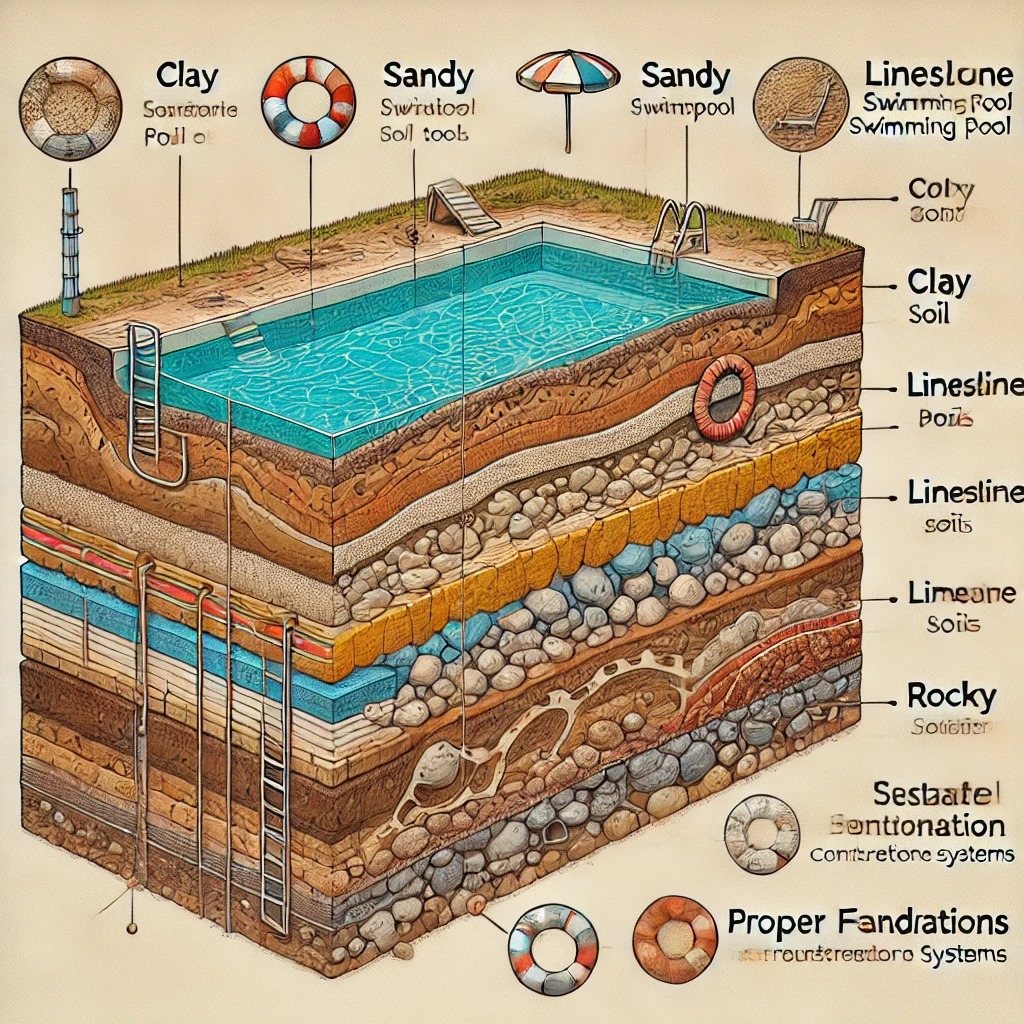
1. Clay Soil:
Clay soil is prevalent primarily in the central coastal areas of Cyprus. It is a heavy, water-retentive soil that slows down water drainage and increases the risk of soil expansion and contraction, depending on the weather.
Impact on Fiberglass Pool Construction: Clay soil requires special reinforcement and a more stable installation for pools, as the soil’s shifting can affect the pool’s stability. High-quality foundation work, such as using reinforced concrete and well-designed drainage systems, is recommended.
2. Sandy Soil:
Sandy soil can be found in the southern and western coastal areas of Cyprus. It is lighter than clay, with a fast water drainage capacity but low stability.
Impact on Fiberglass Pool Construction: Sandy soil may pose stability challenges for the pool. However, this can be addressed by adding supports and concrete around the pool to ensure that it remains stable in the less dense soil. A good drainage system is also essential to prevent soil erosion.
3. Limestone Soil:
Cyprus is characterized by large areas of limestone soil, especially in mountainous and central parts of the island. Limestone is strong and durable, with moderate water drainage capacity.
Impact on Fiberglass Pool Construction: Limestone soil is highly stable, making fiberglass pool installation easier. This soil type doesn’t require special reinforcement, but it’s important to ensure that water drainage is properly managed to prevent water accumulation.
4. Rocky Soil:
Rocky soil is common in the mountainous regions of Cyprus, consisting of rocks and hard ground.
Impact on Fiberglass Pool Construction: Rocky soil requires more complex excavation work, but once the excavation is complete, it provides an extremely stable foundation for fiberglass pools. This type of soil may require specialized tools and additional costs, but the result is a stable pool for the long term.
5. Loamy Soil:
Loamy soil is a balanced mix of sand, clay, and gravel, and is found mainly in the interior regions of Cyprus. It is known for its good water drainage and relatively high stability.
Impact on Fiberglass Pool Construction: Loamy soil is considered one of the ideal types of soil for pool construction, as it offers the right balance between stability and water drainage. In most cases, no special reinforcements are required, but a local assessment of the soil should be done to determine if additional infrastructure is needed.
Necessary Adjustments for Fiberglass Pool Construction Based on Soil Type:
Whether it’s clay, sandy, limestone, or rocky soil, certain technical adjustments can be made to ensure the pool’s durability over time:
Concrete Supports: In areas with less stable soils, such as sandy or clay soils, concrete supports should be used to ensure the pool’s stability.
Drainage System: A proper drainage system is critical for all soil types, but especially in soils where water retention is either too low (sandy) or too high (clay).
Thorough Excavation: Rocky soils require deeper excavation with specialized tools, but once completed, they provide a very strong foundation for the pool.
Conclusion:
Cyprus offers a wide variety of soil types, and each one requires unique considerations when building fiberglass swimming pools. With the right understanding of the local soil type, you can ensure a quality construction process that will last for years and provide a safe and enjoyable pool.
**LIAM POOLS** provides custom consultation and construction services, using advanced technologies and the highest quality materials to ensure you get the perfect fiberglass pool suited to the local soil and climate conditions.
Soil Types in Cyprus and Their Impact on Fiberglass Swimming Pool Construction
Liam Pools designed to last, built to enjoy Contact us...
Read MoreFiberglass Pools – The Perfect Choice from LIAM POOLS
Liam Pools designed to last, built to enjoy Contact us...
Read MoreWater Treatment in Swimming Pools – LIAM POOLS Guide for Cyprus
Liam Pools designed to last, built to enjoy Contact us...
Read More